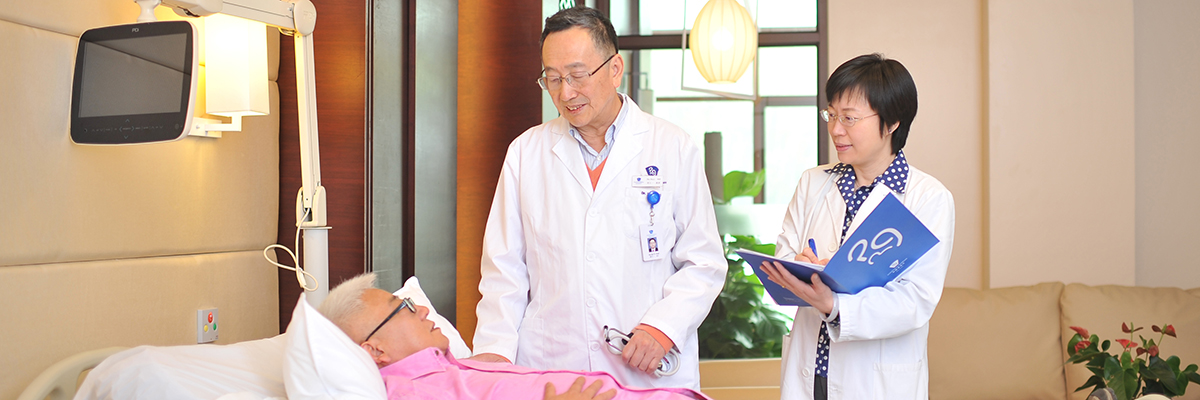
 Arrhythmia Treatment
Arrhythmia Treatment
At the Cardiovascular Center at Beijing United Family Hospital (BJU), our specialists have extensive experience with a range of heart rhythm conditions, including:
- Arrhythmias (abnormal heart beat)
- Atrial fibrillation
- Atrial flutter
- Supraventricular tachycardia
- Ventricular fibrillation
- Ventricular tachycardia
- Brugada Syndrome (genetic condition)
- Long QT Syndrome (genetic condition)
- Bradycardia (slow heart rate)
- Sick sinus syndrome (heart rate too fast and too slow)
A multidisciplinary medical team of electrophysiologists, nurses, technologists, research staff, cardiac resynchronization therapy specialists and holter monitor specialists of physicians, nurses, technicians and surgeons make up the Cardiovascular Center staff.
Diagnosing cardiac arrhythmias
Cardiac arrhythmias can be diagnosed using non-invasive procedures or invasive procedures such as electrophysiology (EP) studies. Our medical team can diagnose and treat a variety of cardiac arrhythmias. Your doctor may order one or more of these tests for you.
- Electrocardiograms, including signal-averaged electrocardiography
- Holter monitoring
- Event recorder
- Echocardiogram
- Exercise test (stress test or treadmill test)
- Invasive electrophysiology studies
Leading treatments and procedures
With advanced resources, including advanced technology in the hands of experienced clinicians, the BJU Cardiovascular Center offers several options to help manage arrhythmias. Your medical team will help evaluate and recommend the best treatment plan for you. Available treatments include:
- Antiarrhythmic medications
- Implantable cardioverter defibrillators (ICDs) and pacemaker insertion
- Catheter ablation, including radiofrequency ablation
- Cardiac resynchronization therapy (CRT)
- Electrical cardioversion
- Complicated ablation procedures and pulmonary vein isolations
Our Facilities
Patient Stories & Information
Copyright 天九国际网站是多少 2014 All right reserved - 京卫网审[2014]第1927号 - 京ICP备13017554号-4
 Arrhythmia Treatment
Arrhythmia Treatment 



